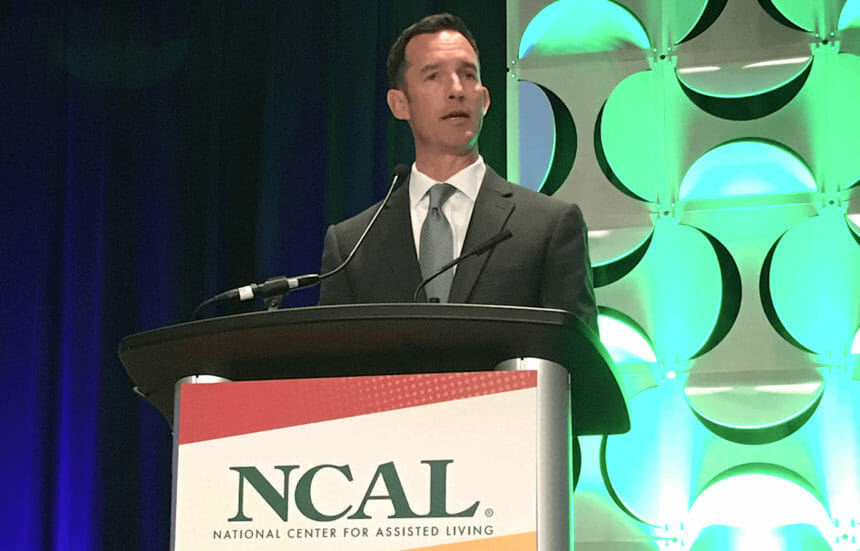
ORLANDO, FL—There’s some good news associated with the divided Congress that hasn’t accomplished much this year, National Center for Assisted Living Executive Director Scott Tittle said Sunday during NCAL Day.
“There really weren’t any attempts to regulate assisted living at the federal level, and there really weren’t any major threats to Medicaid,” he said, addressing a record-setting NCAL Day crowd of approximately 260 people.
Nonetheless, Tittle said, NCAL is keeping an eye on several issues at the national level:
- A Government Accountability Office report released last month that highlights the differences in abuse and neglect reporting requirements for assisted living communities versus nursing homes and notes that “improved federal oversight of the health and welfare of residents is needed in both nursing homes and assisted living facilities.” “While we’re not hearing much followup on The Hill, we need to stay close to chatter on reports like this,” he said.
- Details about the home- and community-based services final rule, for which the Centers for Medicare & Medicare Services issued guidance earlier this year. The rule will be used to determine which settings, including assisted living, are and are not eligible for waivers to provide HCBS for Medicaid beneficiaries. “We’re generally pleased with the guidance, particularly for assisted living providers looking to build new properties and partake in Medicaid, but the devil’s in the details, always, and especially at the state level,” Tittle said.
- States that may seek to set up block grants for Medicaid, for which the Trump administration has expressed support. “Obviously, this is very concerning to us, as block grants would threaten access to long-term care for our most vulnerable residents,” Tittle said. “We’re raising these concerns with CMS, and state affiliates are leading the charge at the state level if their states seek to make this happen.” Tennessee has proposed such an approach.
It’s too soon to know the ramifications of the 2020 elections, Tittle said, but assisted living providers can take actions now to advocate for the industry. He recommended that operators host elected officials and candidates at their communities.
“These tours are central opportunities to help them understand what we do, our commitment to quality, how we’re major employers in the marketplace and an integral part of the larger community,” Tittle said.
NCAL members also can tell their stories to elected officials and their staff members at the organization’s 2020 congressional briefing in Washington, he added, and can participate in NCAL’s quality data collection efforts “so we’re all better equipped to tell our story on The Hill.”
“Federal policymakers have a role to play in certain areas, but we need to make sure that they understand that states are best positioned to oversee our profession,” Tittle said.
“National uniformity” is not the way forward for assisted living either, he said.
“I’m really proud of NCAL and our state affiliates, because we’ve made a commitment to represent all types of AL providers: large, small, for-profit, not-for-profit, social model, medical model, you name it. We represent all,” Tittle said. “We thrive as a profession because of this diversity. We are better providers for our residents when we can cater to their specific needs. …A standard definition or prescriptive care practices would only create a box for assisted living providers to have to fit into, and we want to think outside the box.”



